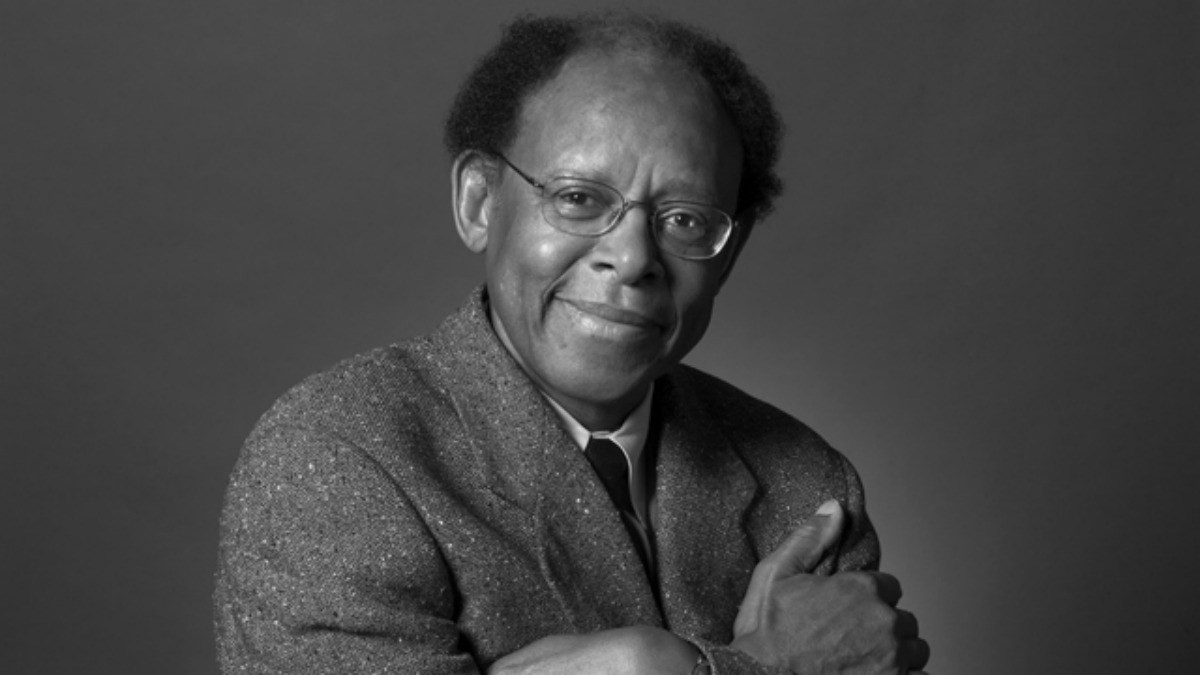I only made it two pages into James Cone’s 1969 book, Black Theology and Black Power, before I knew I needed to buckle up and take this one slow. He spoke with the words of John the Baptist and gave context to the concept of oppression I had never seen before.
His basic message is that Jesus is black and white folks will never understand Jesus until they understand his blackness.
Let’s unpack that a bit more.
The message of Jesus was given to oppressed people. In fact, most of the Bible was written to people who were under some form of occupation or oppression. Jesus’ message is full of power and freedom. He was not leading a military revolution against the Romans, but rather showed a group of oppressed people a way out that maintained their dignity and showed the frailty of the earthly power structures around them.
Cone argues that in the American context, black people represent one of the most oppressed groups, and white people are those who are doing the oppressing. Therefore, to truly understand the message of Jesus, you must be able to see Jesus as black–see him as a man speaking on behalf of a community who has had a boot on their neck for many generations. White folks must be able to identify themselves as the oppressors in the teachings of Jesus and take a posture like that of the Roman centurion.
Cone says,
Christ is to be found, as always, where men are enslaved and trampled underfoot; Christ is found suffering with the suffering; Christ is in the ghetto. There also is his church.
…for 20th century America the message of black power is the message of Christ himself.
…If the gospel is a gospel of liberation for the oppressed, then Jesus is where the oppressed are and continues his work of liberation there. Jesus is not safely confined in the first century. He is our contemporary, proclaiming release to the captives and rebelling against all who silently accept the structures of injustice. If he is not in the ghetto, if he is not where men are living at the brink of existence, but is, rather, in the easy life of the suburbs, then the gospel is a lie. The opposite, however, is the case. Christianity is not alien to Black Power; it is Black Power.
On being a Christian and white
Here is the first quote of Cone that stopped me in my tracks:
I know that some religionists would consider black power as the work of the Antichrist. Others would suggest that such a concept should be tolerated as an expression of Christian love to the misguided black brother. It is my thesis, however, that black power, even in its most radical expression, is not the antithesis of Christianity, nor is it a radical idea to be tolerated with painful forbearance. It is, rather, Christ’s central message to 20th century America. And unless the empirical denominational Church makes a determined effort to recapture the man Jesus through a total identification with the suffering poor as expressed in black power, that church will become exactly what Christ is not.
By ignoring the oppression of black people (and not owning up to the cause of it), we are becoming exactly what Christ is not. We continuously push farther away from him every day that we ignore what is happening around us. Cone says again:
If the church is to remain faithful to its Lord, it must make a decisive break with the structure of this society by launching a vehement attack on the evils of racism in all forms.
Cone isn’t just talking about white churches speaking against racism now and again. By ignoring the systemic racism all around us and our complicity in it, we are distancing ourselves from Christ’s message. We surround ourselves with comfort and make Christ a stranger.
If God is to be true to himself, his righteousness must be directed to the helpless and the poor, those who can expect no security from this world. The rich, the secure, the suburbanite can have no part in God’s righteousness because of their trust and dependence of the things in this world…his righteousness is reserved for those who came empty-handed, without any economic, political, or social power. That is why the prophets in Jesus were so critical of the economically secure. Their security gets in the way of absolute faith in God.
On theologians, and German and American thoughts
Cone is well-versed in many eras of theological thought. He takes issue with theologians who don’t engage with the social issues of the day, those who view theological and social issues as separate things.
It seems that one weakness of most theological works is their “coolness” in the investigation of an idea. Is it not time for theologians to get upset?
…On the American scene today as yesterday, one problem stands out: the enslavement of black Americans. But as we examine what contemporary theologians are saying, you find that they are silent about the enslaved condition of black people. Evidently they see no relationship between black slavery in the Christian gospel. Consequently there’s been no sharp confrontation of the Gospel with white racism.
Germans dominated the field of theology throughout most of the late 19th and 20th centuries. Cone points out that most of American theology during this time was just footnotes on what the Germans were producing. Yet, it was during this time that German theologians were engaging with a lot of heavy social issues all around them. Conversely, American theologians distanced themselves from most social issues.
Cone also draws attention to the strong American sympathy shown to Jews during the Holocaust. Most white Americans consider the Holocaust the worst act of humanity by far. Cone writes,
It is interesting that most people do understand why Jews can hate Germans. Why can they not understand why black people, who have been deliberately and systematically dehumanized promoted by the structure of the society, hate white people? The general failure of Americans to make this connection suggest that the primary difficulty is there an ability to see black men as men.
We are quick to judge Nazi Germany, but are very hesitant to acknowledge the ways that we have been as heinous or worse to blacks.
To cap it all, whites feel that we have some moral high ground on the world stage due to our church attendance.
It is ironical that America with its history of injustice to the poor, especially the black man and the Indian, prides itself as being a Christian Nation.
On race relations
Most white Christians feel they have the ability to deal with racial issues when they have the time. We think that we can come in and out of the issues. However, Cone points out that.
Racism is so embedded in the heart of American society that few, if any, whites can free themselves from it.
‘Racial reconciliation’ has reemerged as a popular term for white churches to show that they want to enter into the ‘dialogue’. A few Christian groups have shown a willingness to “open up a conversation about race”.
But even writing back fifty years ago, Cone says,
There is no neutral position in a war. Even in silence, one is automatically identify as being on the side of the oppressor. There’s no place in this war of liberation for nice white people who want to avoid taking sides and remain friends with both the racist and the negro. To hear the word is to decide. Are you with us or against us? There’s no time for conferences or talk of any sort. If the hearing of the word and the encounter with the spirit do not convince you, then talk will be of little avail.
The debate is over. There will be no more meetings between liberal religious white and middle-class negroes to discuss the status of race relations in their communities.
When it comes to reconciliation, Cone says,
The real question is not whether black theology sees reconciliation as an end but, rather, on whose terms we are to be reconciled. The problem of reconciliation is the oppressors problem.
It is not up to black people to decide what concessions they want. This is about white folks owning up to the sins of the past and those we continue to be involved with and benefit from.
Racial reconciliation is not something Christians should be able to dip their toe into. “There are no degrees of human freedom or human dignity. Either a man respects another as a person or he does not.”
Whites are notorious for telling blacks how they should respond to their social situation. Cone says, “It is time for whites to realize the oppressor is in no position whatever to define the proper response to enslavement.”
When we think about race relations in America, most whites most admire Martin Luther King, Jr. and his approach. However, many in the black community feel that MLK was only accepted by the establishment because he was willing to pull punches with them in the early part of his career.
One cannot help but think that most whites loved Martin Luther King, Jr. not because of his attempt to free his people but because his approach was the least threatening to the white power structure.
On owning up as whites
Cone comes down hard on how white Christians will not own their role in the current racial climate. He says they are constantly changing the conversation and letting themselves off the hook.
The American white man has always had an easy conscience.
…If whites are honest in their analysis of the moral state of the society, they know that all are responsible. Racism is possible because whites are indifferent to suffering and patient with cruelty.
…White America’s attempt to free itself of responsibility for the black man’s inhuman condition is nothing but a protective device to ease her guilt. Whites have to convince themselves that they are not responsible. That is why social scientists prefer to remain detached in their investigations of racial injustice. It is less painful to be uninvolved.
…The white church must own that has been and is a racist institution whose primary purpose is the perpetuation of white supremacy. But it is not enough to be sorry or admit wrong. It Involves changing one’s holding. In the Christian perspective, it means conversion.
This quote from French philosopher Francis Jeanson is one of the most powerful ones I’ve encountered about white complicity:
If you succeed in keeping yourself unsullied, it is because others dirty in themselves in your place. You hire thugs, and, balancing accounts, it is you who are the real criminals: for without you, without your blind indifference, such men could never carry out deeds that damn you as much as they shame those men.”
Thus far, it’s hard to talk about the proper response of white Christians, because there have been so few.
Black theology assumes the possibilities of creative response among white people to Black oppression are virtually nonexistent. What slim possibilities there are belong only to those whites who are wholly committed to the activity of destroying racism in the structure of the white community.
As whites, we tend to try to step back and be objective about racial activity. But this is a dangerous position to take.
The Pharisee is a man who figured out on the basis of law what is the right and wrong course of action. If asked why he chose this action rather than that, he can rationally defend himself. Essentially the Pharisee is not a doer of good or evil, he is basically the one who judges the actions of others. But to assume that one has knowledge of Good and Evil is to ignore the fall of Man. It assumes that doing the will of God means obeying a system of rules, a pattern of life.
On black theology
Cone calls Black theology not just a sub-branch that caters to people who happen to be black, but rather a refocus on the anti-oppression found in Jesus’ words.
There is a need for a theology whose sole purpose is to emancipate the gospel from its whiteness so the blacks may be capable of making an honest self-affirmations through Jesus Christ.
…The black intellectual community, however, with its emphasis on black identity, is becoming increasingly suspicious of Christianity because the oppressor as use it as a means of stifling in the oppression of concern for present any inequities.
…Must black people be forced to deny their identity in order to embrace the Christian faith?
…Black theology refuses to embrace any concept of God which makes black suffering the will of God.
On being human
One of Cone’s themes is that essential to being human is the ability to say “no”.
Through Christ the poor man is offered freedom now to rebel against that which makes him other than human.
…Black Power is to refuse to cooperate in our own dehumanization.
Final note
To end, here’s a quote that Cone adds from Abraham Lincoln, during his debates with Stephen Douglas, lest we forget our heritage:
I will say then that I am not, nor ever have been in favor of bringing about in any way the social and political equality of the black and white races–that I am not nor ever have been in favor of making voters or jurors of Negroes, nor of qualifying them to hold office, nor to intermarry with white people; and I will say in addition to this that there is a physical difference between the white and black races which I believe will forbid the two races living together on terms of social and political equality, and in as much as they cannot so live, while they do remain together, they must be the position of superior and inferior. And I as much as any other man I’m in favor of having the superior position assigned to the white race.



